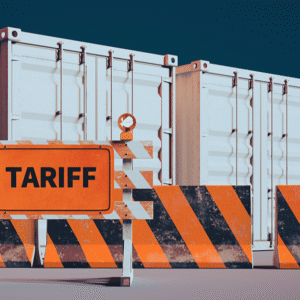Legal approval required for selling goods and services online in Dubai
Starting an online business in the UAE requires obtaining an E-Commerce License in Dubai, which allows individuals and companies to legally offer products or services through digital platforms. As online retail, dropshipping, and digital services grow rapidly, this license has become essential for anyone planning to sell through websites, apps, or marketplaces within or outside the UAE.
Dubai offers one of the most favorable environments for e-commerce startups, thanks to its strategic location, advanced logistics, and supportive government regulations. Whether you’re targeting local consumers or global buyers, having a registered online business boosts your brand credibility, enables you to run paid ads, open a business bank account, and operate within legal limits.
Dubai licensing options for new e-commerce entrepreneurs
There are two primary ways to obtain an E-Commerce License in Dubai: through the Dubai Department of Economic Development (DED) for mainland companies or through one of the various Dubai free zones, such as Dubai Multi Commodities Centre (DMCC), Dubai South, or Dubai CommerCity. Each offers different benefits depending on your business goals, visa needs, and target markets.
The DED license allows you to sell directly to the UAE market without a local agent, while free zone licenses often come with 100% foreign ownership and tax exemptions. Both models require trade name registration, submission of identification documents, and business activity approval. Online businesses that sell physical products may also need warehouse space or a fulfillment partner.
Key documents and steps required for e-commerce license registration
To complete the E-commerce License Registration in Dubai, you must gather specific documents and follow a clear application process. These documents and steps ensure your business is legally recognized and properly categorized:
- Passport copy of the business owner or shareholders
- UAE residence visa and Emirates ID (if applicable)
- Proof of residential address or tenancy contract
- Trade name reservation certificate
- Description of e-commerce business activity
- Initial approval from licensing authority
- Payment of license and registration fees
Once these documents are submitted, you can receive your trade license within 3 to 5 working days in most cases. After registration, you can also apply for additional services such as office space, employee visas, or VAT registration, if needed.
Breakdown of licensing cost and annual renewal charges in Dubai
The E-Commerce License Cost in Dubai and Business setup in Dubai depends on whether you choose a free zone or mainland setup, as well as on optional services like office rent, visa quotas, and business activities. Here’s a general cost breakdown:
- DED e-commerce license: AED 12,000 to AED 15,000 (approx.)
- Free zone license (no visa): AED 5,750 to AED 10,000
- Free zone license (with visa quota): AED 11,000 to AED 18,000
- Shared desk or flexi-desk: AED 5,000 to AED 8,000 per year
- E-channel registration and immigration card: AED 2,500 to AED 3,000
Many business setup consultants in Dubai offer bundled packages that include all services like license issuance, office space, and visa processing. Some free zones offer promotional rates for new startups or female entrepreneurs. It’s also important to renew your license annually to avoid fines and maintain business continuity.
Advantages of having a legal e-commerce setup in Dubai
Getting an E-Commerce License in Dubai offers many benefits that go beyond legal compliance. Dubai is a major global hub for trade and technology, which gives online entrepreneurs a significant edge. Here are some major benefits:
- Full legal rights to advertise and sell through online platforms
- Ability to open corporate bank accounts in the UAE
- Protection of intellectual property and business brand
- Easier access to payment gateways and logistics partners
- Business credibility for local and international clients
- Eligibility for UAE residency visa for owners and staff
- Freedom to trade globally without currency restrictions
With growing consumer trust in digital platforms and government support for digital transformation, e-commerce in Dubai is expected to grow rapidly in the coming years. This makes now an ideal time to enter the market with a registered and licensed online business.
Considerations before choosing a license type or business jurisdiction
Before applying for your license, it’s important to evaluate your business model. For instance, a seller targeting UAE customers through social media may benefit more from a DED license, while a digital service provider working internationally might find free zones more cost-effective. It’s also useful to consult a licensed business setup and Business setup in Abu Dhabi Mainland advisor who can suggest the best jurisdiction based on your budget, visa needs, and future goals.
If you plan to scale your business, consider choosing a free zone that allows easy upgrade of license activities, expansion of staff visas, and leasing of office space. Also, make sure your trade name is aligned with your business type and that it complies with local naming rules.
Frequently asked questions about Dubai e-commerce license
Q1: Is an E-Commerce License in Dubai mandatory for online business?
Yes, you need a valid e-commerce license to legally operate an online business in Dubai.
Q2: What is the E-Commerce License Cost in Dubai?
The cost ranges from AED 5,750 to AED 18,000 depending on the license type and visa requirement.
Q3: Can a foreigner apply for an e-commerce license in Dubai?
Yes, foreigners can apply and own 100% of the business, especially in free zones.
Q4: How long does it take to get an e-commerce license in Dubai?
It usually takes between 3 to 7 working days if all documents are complete.
Q5: Can I register my e-commerce business online in Dubai?
Yes, most free zones and DED allow online applications and digital document submissions.




